
THE MEMOIRS OF VALMIKI RAO By Lindsay Pereira PENGUIN VINTAGE
This is the story of Ganga Niwas and Sri Niwas, two neighbouring chawls in Parel, Mumbai. Valmiki Rao, a retired postman and resident of Ganga Niwas, writes down his memories of the year the Babri Masjid fell in Ayodhya, and the riots that engulfed Mumbai in its aftermath. The running theme: “What did people in his chawl have to do with a mosque that was being attacked in a city none of them had ever seen?”
The novel has multiple strands. It chronicles the rise of the Shiv Sena, and the opportunistic alliances it struck with the Bajrang Dal and the VHP. In the middle of the 1980s, festivals like Gokulashtami “started to get bigger.... That is when politicians and Shiv Sena leaders began transforming them with money”. In 1984, the Bajrang Dal appears on the scene. By 1992, new slogans like ‘Jai Shri Ram’ and ‘Chalo Ayodhya’ enter the chawls’ vocabulary: “They wanted a temple for their God even though none of them bothered visiting the same God in Parel.” This part is about the nationalisation of Lord Ram, one amongst many gods in the Hindu pantheon. The book works well as a complex potted history of the rise of the Hindu Right in Mumbai. We are told how older Sena shakhas have “embrasures—little openings through which cannons can be fired”, while the new ones sport “bright orange walls set against brass-coloured doors and blue-tinted windows”.
The second strand is a tragic love story, which involves characters from both chawls:
Esta historia es de la edición December 04, 2023 de India Today.
Comience su prueba gratuita de Magzter GOLD de 7 días para acceder a miles de historias premium seleccionadas y a más de 9,000 revistas y periódicos.
Ya eres suscriptor ? Conectar
Esta historia es de la edición December 04, 2023 de India Today.
Comience su prueba gratuita de Magzter GOLD de 7 días para acceder a miles de historias premium seleccionadas y a más de 9,000 revistas y periódicos.
Ya eres suscriptor? Conectar
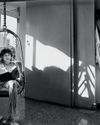
He gave the beat to the world
He would pick up the rhythms of each experience of mobility and weave them into his taals. Thus it was that he reflected joy and laughter in rhythmic cycles...such was the magic of Zakir's fingersText and photographs by Raghu Rai
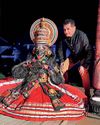
KERALA TOURISM CAMPAIGN, 1989 - TICKETS TO PARADISE
All it took was a catchy tagline-'God's Own Country'-for the world to discover Kerala's wealth of natural beauty. It remains among the best tourism ad campaigns, earning the state a place among top 10 international destinations

SPIRITUALITY - THE GURUS OF COOL
Among the cult Indian gurus, no one had a bigger hold on western minds than 'Osho' Rajneesh. He's also perhaps the role model for the enterprise-building gurus of today
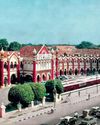
RETAIL SHOPPING - THE MALL MANIA
Shopping malls, a 1990s innovation in India, changed the way the Indian middle class shops. Their success now lies in being 'shoppertainment' destinations, offering something for everyone

CULINARY RENAISSANCE, 1978 - TANDOORI NIGHTS
ITC's Bukhara and Dum Pukht turned the world to tandoori cuisine and had an enormous impact on the F&B industry. Decades on, they are still a pit-stop for celebrities and heads of state visiting Delhi
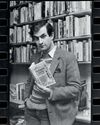
INDIAN WRITING IN ENGLISH - REVENGE OF THE NATIVE
Rushdie lit the way but Indian writing in English has taken a life of its own in the past few decades, with translated Indian fiction most recently having its moment in the sun
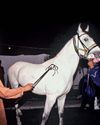
INDIAN ART - A BRUSH WITH GOLD DUST
The 1990s economic liberalisation came as oxygen, lighting up the Indian art scene. Today, artworks by established masters routinely go for astronomical amounts
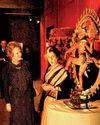
FESTIVAL OF INDIA, 1982 - CULTURE CAPITAL
The Festival of India grew into a symbol of our 'soft power', introducing our art and aesthetics to a global audience while also helping rebrand our domestic products

THE INDIPOP TREND - DISCO GOES DESI
For ages, the film song ruled. Nothing else was audible. Then came Nazia, charioteered by Biddu, and Indian ears went into a pleasant madness. Literally, Disco Deewane. A whole genre was born
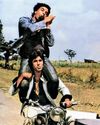
SHOLAY 1975 - THE BIRTH OF THE FANDEMIC
India had seen hits before. But Sholay seared into its collective psyche like a badland bullet. The effect was on a scale never seen before- one film creating a new mass folk culture. And a trail of monster blockbusters that still continues